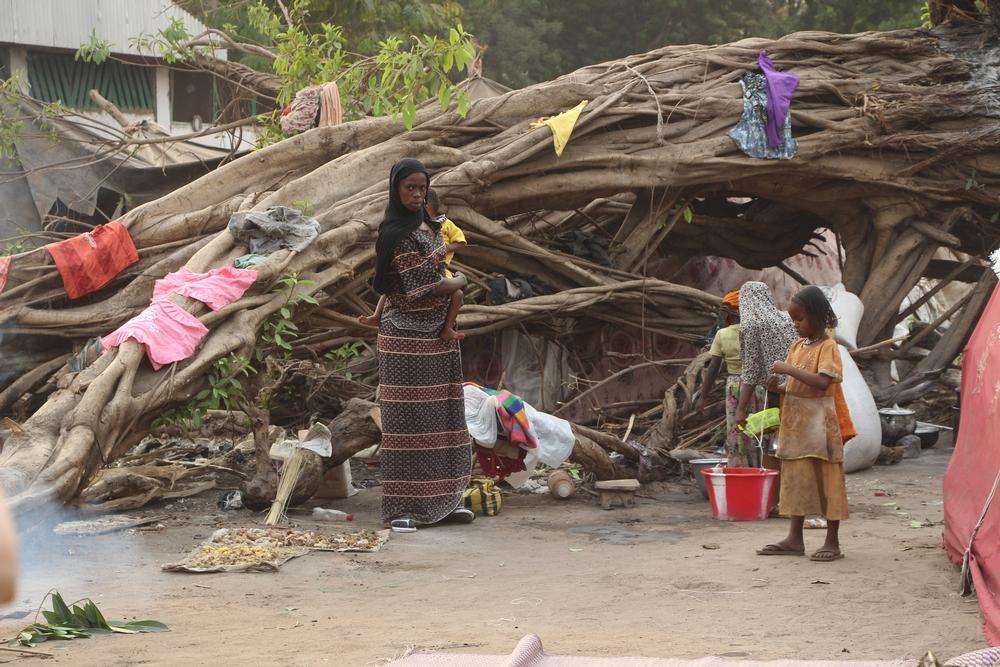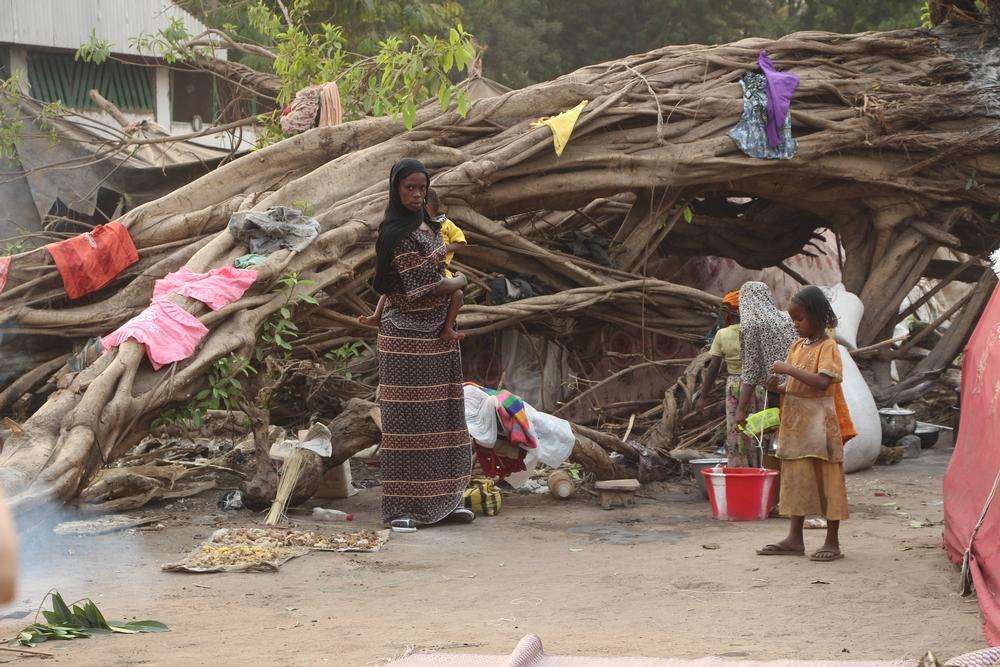As fighting in Central African Republic (CAR) continues, tens of thousands of refugees who fled the country have arrived in Cameroon and Chad, along with other countries, and now find themselves trying to survive in deplorable conditions where they lack clean water, decent shelter and food, and where humanitarian assistances is falling far short of the needs.
Doctors Without Borders/Médecins Sans Frontières (MSF) is providing medical care at numerous sites in both countries, as well as in other nations currently hosting refugees from CAR.
Cameroon
An estimated 22,000 Central Africans have fled to Cameroon in 2014. Thousands are now living under trees in and around Garoua-Boulaï, a small town in eastern Cameroon, where they are almost completely reliant on the local community and malnutrition is rising, particularly among children. MSF teams are providing emergency medical aid at the Pont-Bascule site and are working in the district hospital, where they are carrying out 800 medical consultations per week. MSF has also built latrines and showers, provided access to drinking water, and distributed blankets and soap to 4,000 refugees.
In addition, MSF set up a health center in the Mborguéné transit camp, roughly 30 miles away, to address the needs of the roughly 10,000 refugees there. New groups of people continue to cross into Cameroon south of Garoua-Boulaï, settling in a remote area that will be unreachable during the rainy season. MSF’s mobile clinic in Mboy can provide some assistance, but there is an urgent need for them to reach or transferred to a more accessible location.
The refuges from CAR “have already suffered too much and they are extremely vulnerable,” said Mariano Lugli Assistant Director of Operations who just returned from Cameroon. And yet, he adds, “as the situation in CAR deteriorates, more and more people are arriving in Cameroon. It is urgent that all humanitarian actors act with immediate effect. These refugees need security, food, shelter, access to drinking water and emergency medical care.”
Chad
In southern Chad, thousands of people who fled from CAR are urgently in need of assistance, particularly emergency food aid. “The World Food Program and the Chadian authorities must distribute food immediately to these destitute populations,” says Sarah Chateau, MSF head of mission in Chad.
Most of these refugees arrived in Chad after exhausting journeys on truck convoys, many of which came under attack. Their current living conditions are extremely precarious and highly unsanitary. The World Food Program (WFP) carried out a single food distribution five weeks ago. “More than 8,000 refugees have arrived since that time,” says Augustin Ngoyi, MSF program coordinator in Sido. “They have not gotten anything to eat, apart from the few protein biscuits that some of them received.”
For the most part, refugees are living in makeshift shelters and the most recent arrivals are camped out under trees. There are only 20 latrines and four water points for the 13,200 refugees in Sido. Malaria is rife among those MSF has treated in its health center, and in one 16-day period, teams treated 56 children with acute severe malnutrition.
Local authorities on site are struggling to deal with this crisis, but they lack resources and support. MSF is the only international organization on site. “The refugees need emergency food aid, as well as mosquito nets, shelters and latrines,” Ngoyi says. “The U.N. agencies, including the WFP, and the Chadian authorities must act right away.”
In both settings, Chad and Cameroon—as well as in other countries where CAR refugees are seeking shelter, a scale up of assistance is urgently needed.
_____________________________________________________________________
In Chad, MSF runs a health center in Sido, where it is also setting up a hospitalization unit with a therapeutic feeding center. In Bitoye, MSF teams see approximately 100 patients per week and have vaccinated nearly 7,000 people against measles, meningitis and polio. In N’Djamena, MSF mobile teams provide care to refugees at several transit sites. MSF also operates regular projects in Abéché, Am Timan, Massakory, Moissala and Tissi.
In Cameroon, where MSF has worked since 1984, MSF has deployed emergency teams in the east to provide primary medical care to refugees in collaboration with the Ministry of Health.





